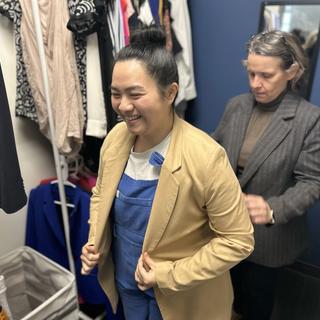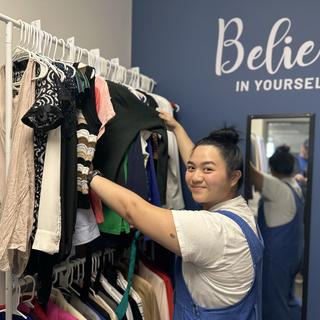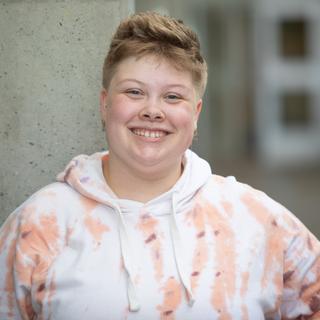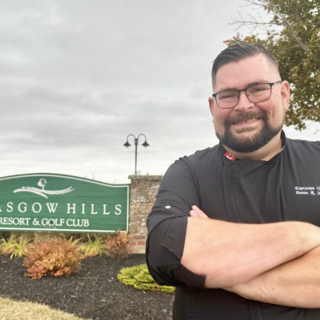by Heather Burke, MCF Learning Facilitator
It has been four years since Vancouver Island University first partnered with the Mastercard Foundation on an innovative program called the EleV Learning Partnership. Through the EleV Learning Partnership at VIU, many teachings have come forward from Indigenous learners, families, communities, and other learning partners related to healthy and balanced journeys through post-secondary and beyond.
EleV provides scholarships and wrap around supports for Indigenous youth through individual partnerships with over sixty communities on Vancouver Island and nationally. EleV magnifies education resources of each community by alleviating waitlists, which are sometimes as long as two or three years. Now that EleV is in its fifth year at VIU, some of the ingredients that go into co-creating student support through good relations are becoming clear.
EleV principles undergird the work at VIU and guide us to utilize community education resources to direct education in line with economic and social aspirations through co-creation and collaboration and engaging youth voice, experience, and expertise. Indigenous Education Navigators and Education Directors and/or Coordinators in communities animate these principles through lived experience by working together as partners who support learners with program exploration, applying to VIU, and getting enrolled in classes. Once students are enrolled, Navigators work with each community to listen to the youth and do whatever is needed to remove barriers through individual approaches. Navigators and community partners work to create enabling conditions for youth to journey into and through post-secondary feeling healthy, grounded, and excited about learning without having to leave culture and tradition behind. There is still more to learn and more work ahead to further remove barriers with Indigenous learners on their educational journey, but relationships between Indigenous Education Navigators and Education Coordinators in communities are an important step on the way to meeting VIU’s commitment to becoming a more inclusive and healthier place for work and study.
When the EleV program entered its third year, it became clear the availability of scholarships and relieved waitlists did not guarantee that more Indigenous learners journeyed successfully through post-secondary. While enrolment in the EleV program was strong, attrition rates were nearly as high as graduation rates. With the assistance of their Navigators and Education Coordinators, many students decided to pause their studies because they faced a myriad of complex life circumstances: deaths in the family, illness, housing shortages, poverty, high expectations from parents, and more. These supported withdrawals enabled students to take the time they needed to restore balance and return in good standing when they were ready without academic consequences or outstanding fees. Students continue to return to their studies through the EleV program, in many cases due to ongoing relationships and partnerships with communities, families, and learners who work together to co-create solutions that start with local cultures.
What does it mean to co-create student support?
It is important to recognize each community has its own unique cultures, languages, practices, and protocols, and Navigators honour that these will inform the work with each student from the community. Through trust and honest communication, ideas can be exchanged and built upon, and others can be included to widen the sphere of support for individual students. Universities are built on linear processes and timelines largely stemming from a colonial past. Until established colonial systems within universities can change to better fit Indigenous learners, Navigators and communities work together to employ decolonizing practices in ways that are led by the guiding philosophies of students’ communities.
Navigators put decolonizing practices into action by meeting students where they are at, and giving them the tools to persist when the inevitable challenges of student life arise. Decolonizing practices can take several forms, and are unique to individual learners. Some of these practices might include using social media or text outside of business hours to talk through crises with students, their families, and/or Education Coordinators in communities.
“The time invested in building relationships has helped us to recognize where we can take the initiative on that co-creation role and be seen as adding capacity rather than intruding. We are now getting to a place where our roles are synergistic and there is that teamwork.” Tasha Brooks, VIU Indigenous Education Navigator
A typical day for an Indigenous Education Navigator might start with providing advocacy for a student who has experienced racism in the classroom. Later, they may travel out to a local community and co-create options with students needing different approaches by finding flexibility in policy or developing workshops. That evening, they may talk through a crisis with a student, answer questions from a student’s family member, or circumvent colonial policies or processes with community partners on Facebook messenger or text. Navigators will also sometimes take students grocery shopping, provide support finding suitable accommodation and then help with the move.
Such practices go far beyond the norm of typical university hours of 8 am to 4 pm for services and supports. However, this is often what is required to facilitate authentic communication and connection with students who might feel embarrassed to reach out for help or share challenges impacting their ability to be present and grounded in their studies. Students informed us that once a single, trusted connection was found (a VIU employee, a fellow student, or cultural support outside of VIU), they then felt confident and comfortable to communicate their needs and problem solve with that person to find solutions. They could then feel grounded, supported, and ready to move forward with their studies.
“My educational journey at Vancouver Island University has been met with immense support from my Indigenous Education Navigator. Being an Indigenous student has given me the privilege of having endless opportunities for personal and professional growth with the help of advocacy. They’ve helped me find connections with my cultural identity while teaching me to cultivate my inner strength. EleV has given me more pathways to fulfilling my educational dreams.” Janelle Minoza, Bachelor of Social Work
“I am beyond grateful for the opportunity to attend university. I have faced many challenges in life. Too many to list of course! Despite these hurdles I am going to preserve through each of them and complete university. To show other women that you can overcome addiction and domestic violence, with support and dedication anything is possible. Dream big and don’t let anyone dim your light again.” Jennifer White, Bachelor of Child and Youth Care.
Indigenous Education Navigators also recognize the community can often support learners in ways the University cannot. The decolonizing approaches taken by Navigators in their day-to-day work are contributing to students persisting in their studies, but that is only half of the equation. Community partners are integral to student success:
“Seeing the accomplishments of the community because of EleV has been amazing. I’d be lost without the Indigenous Education Navigator I work with. It’s wonderful to have that working relationship to help support the students. Bringing in the Navigators to answer questions and talk about how can we support the students is invaluable. When we need something answered we can provide that support, for example I get a heads up from Navigators when a student isn’t attending and then I can connect before anything happens or there are academic consequences.” Louise Dominick, Post-Secondary Coordinator, Tla’amin Nation
Co-creating student support with Indigenous communities goes well beyond the walls of Student Affairs departments in universities; it is organic, yet principled, fluid, yet structured by local protocols, and it invites many people to take on roles and responsibilities in student success, not as university professionals, but as relatives.
Where can co-creating student support go from here?
EleV increases access to post-secondary for Indigenous learners by alleviating community education waitlists. This is done primarily through deepening relationships, and building strong partnerships between Indigenous Education Navigators at VIU and Indigenous communities. EleV support has enabled VIU to learn more about how to further strengthen partnerships with Indigenous communities, partly through co-creating student support. However, Indigenous Education Navigators and community partners cannot do the work alone. Through EleV learning it is clear Indigenous learners benefit from the “all my relations” approach involving families, peers, communities, land, language, VIU faculty and staff, Elders, Knowledge Keepers and more. Infusion of Indigenous ways of knowing, being, and doing make a difference for individual learners in conjunction with infusing health and wellness into curriculum design, teaching, and support services.
“Co-creation is listening and not rushing it – it takes time to build the trust to be vulnerable to together.” Sherry Mattice, VIU Indigenous Education Navigator
Taking an “all my relations” approach fosters the connection to identity, healing, agency, and engagement. Collaboration and co-creation with Indigenous students and communities exposes systemic challenges, builds trust, recognizes reciprocity in knowledge sharing, and promotes ongoing mentorship. Decolonization at VIU is taking root through many initiatives on and off-campus. However, there are many questions arising as we begin to wear a path through the woods of co-creation. Primarily, how do university systems respond to co-creating student support with good relations? There is a need to ensure decolonizing practices do not just happen within the context of good relations, but that systems at universities and across sectors respond to the needs of Indigenous learners, their families and communities.




